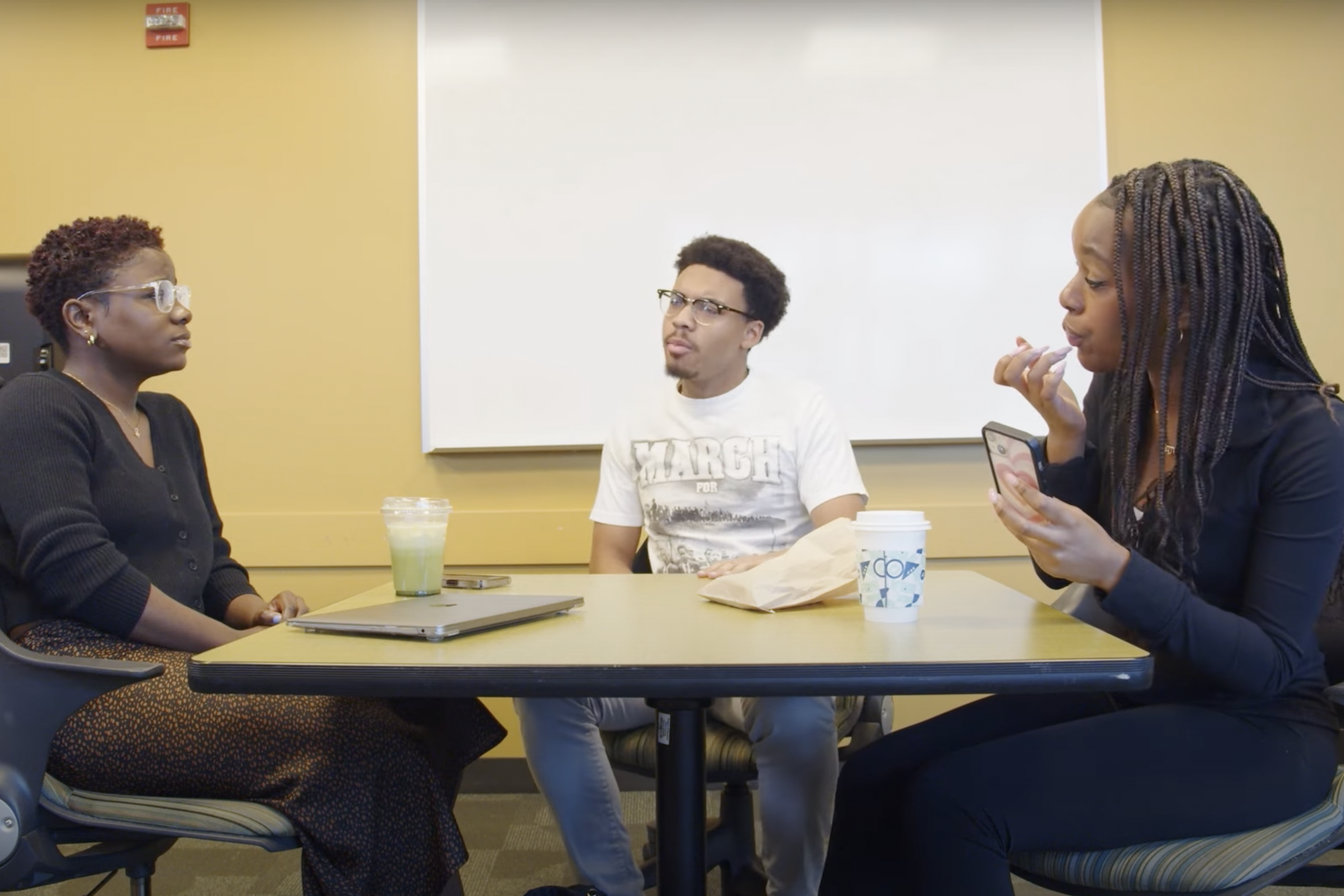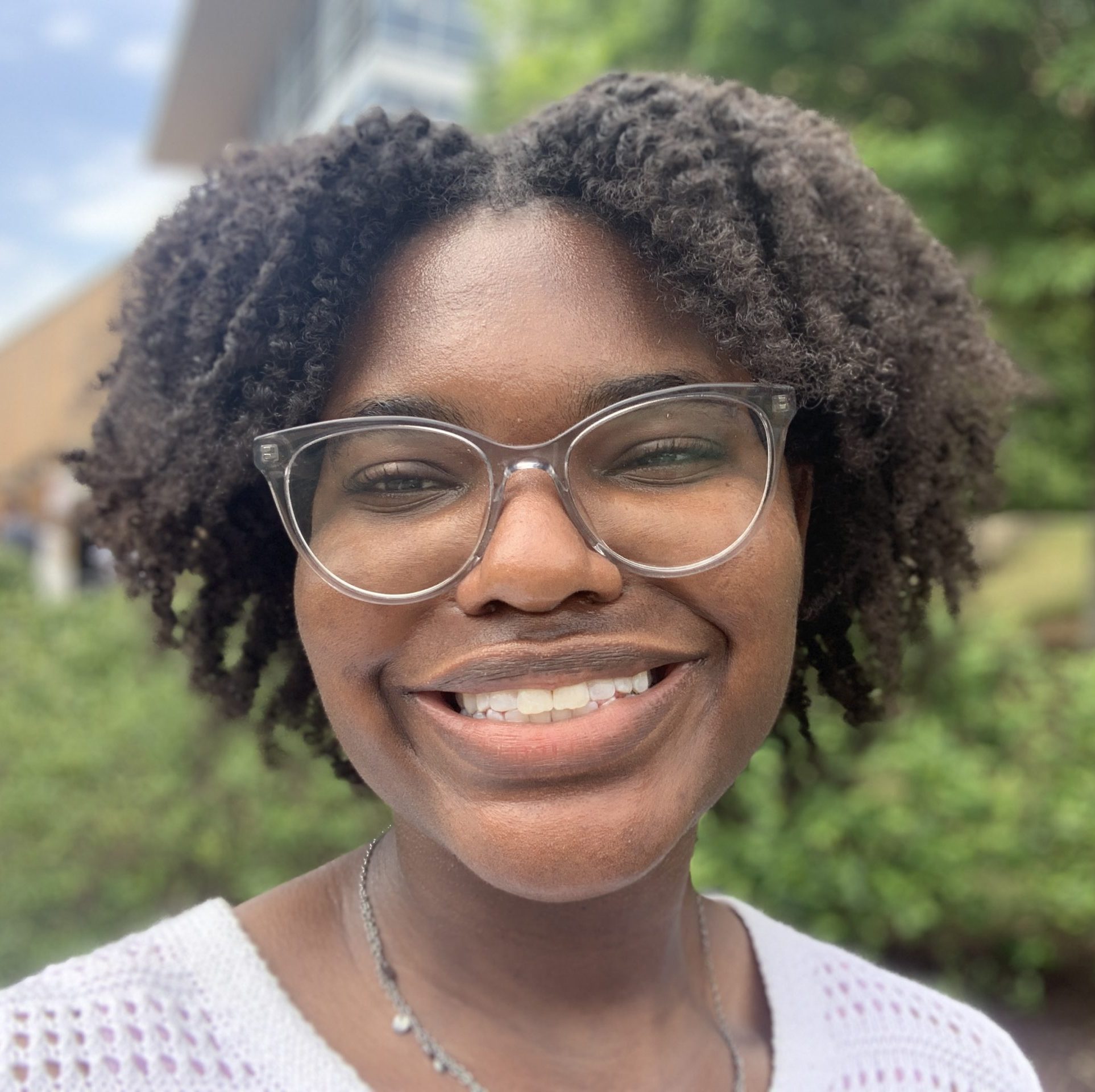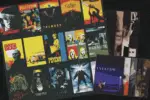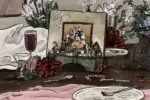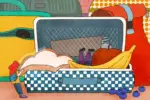Last spring, two Emory University sophomores created “Reality Check,” a YouTube miniseries about their experiences as Black female students. The show follows Monet (Zikora Mbadugha) and Colby (Aziah Phillips-Allen) as they navigate their first semester of classes, crushes and class president elections. With only three episodes out, it’s been a campus-wide hit and even made waves in the greater Atlanta area. In June, I sat down with Mbadugha and Cyreema Marshall, the co-creators of the project.
Elizabeth: Before we get started with the questions, would y’all like to introduce yourselves?
Zikora: I co-star as Monet in the series, and I’m also a rising junior at Emory. I’m double majoring in marketing and film and media studies. I’m an actor first, but I find that it’s so powerful to be able to create your own content.
Cyreema: I’m also a rising junior at Emory. I’m a double major in film and philosophy. We embarked on this journey with representation and relatability in the forefront of our minds. Young Black women have so much creativity. A college campus is a great place to work since it’s so easy to meet other creative and talented people who’ve helped us with this process.
Elizabeth: On that note, what was the development process like? How did you go around finding a cast and crew?
Zikora: We’re really lucky because we have so many creative friends. We both posted on our Instagram stories, as well as on the “Reality Check” account (@realitychecktheseries), that we were looking for a crew. A lot of people really stood up, and it was really nice to see that…the Emory community supported us. For the cast, I know a lot of actors, so I asked them if they wanted to audition. We found the actress who plays Colby, Aziah Phillips-Allen, through a casting call. She goes to Clark Atlanta University, and her friend, who was my friend in middle school, sent [the casting call] to her. It was just, like, really funny because I had no idea that someone I knew knew her, and she ended up playing my best friend. Now that the episodes have come out, lots of people are interested in helping, so we’re looking [to create] more roles.
Cyreema: I was in Film 107 and 207, and they’re both production-heavy classes. We learned how to use the cameras and [collaborate] when we’re making short films. So, a lot of the crew were people who were in my class and that we felt comfortable with. Everyone came on an equal playing field. If they had questions, they could ask. It was very important to have an open conversation with our cast and crew during meetings and on set.
Zikora: It was pretty organized, and I think that comes from my Virgo energy (laughs). Sometimes things went wrong, but because we had such a structured plan, we could quickly reevaluate if we had to do something different. Cyreema definitely has more production knowledge than me. My background is in acting. As an actor, I know what I’m looking for [when I direct]. I create the notes for the actors. Cyreema really makes the show come together from a technical standpoint. She knows what cameras to use, what angles. I let her create the shot list. We work well as a team because we have different strengths.
Elizabeth: You also mentioned some classes you’ve taken, and I noticed Professor Dehanza Rogers in the credits of the show. She teaches several film classes at Emory, including Narrative Fiction Filmmaking. Can you talk specifically about her contribution?
Cyreema: When I joined the class, she asked us, “Who’s making things? What are you actively doing to be a part of the film industry?” I told her about the web series before we had even put out the first episode. She read the script, and she genuinely liked it. That gave us a confidence boost because she’s a Black woman who’s well-established in the industry. She’s not too hands-on, but she gives great advice. [The class was helpful] too because it teaches us how to work with a film crew. Each week, one of the ten of us directed a short film during that four-hour class period. It’s grueling at first, but then once I got accustomed to [the process], I was prepared to do it on “Reality Check.”
Zikora: I haven’t taken Professor Rogers, but I’ve met her because so many of my friends are in that class, and I acted in one of their student productions. In the beginning stages of “Reality Check,” [Cyreema and I] both were really scared, but [Professor Rogers] gave us that confidence to go forward and release the first episode.
Elizabeth: It’s cool to see in real time how your education is impacting your real life. There are also other parts of Emory featured in the show. For example, the main characters live in the Black Student Alliance (BSA) house. How would you say that real Emory clubs, organizations and people have impacted the way in which you characterize the campus in “Reality Check”?
Zikora: A lot of people outside of the community have this misrepresentation of what it means to be Black. But there has never been one way to be Black, and that’s more apparent in college because there are so many types of Black people on campus. I’m Nigerian American, and [Cyreema’s] Trinidadian American. We have two different upbringings, but we also have a lot of similarities. I have a lot of Black American friends, Black friends from different socioeconomic backgrounds. Showing those differences in the Black community as well as how we can all come together at the end of the day and find humor in the same things and find shared cultural values is very important. [Monet and Colby] have different backgrounds, and we’re excited to explore how that contributed to who they are. But the foundation of the series is showing that Black people aren’t a monolith.
Cyreema: I moved into the BSA house in the second part of [last] semester. It was enlightening for me because I was like, “I’m no longer uncomfortable walking downstairs into the kitchen with my bonnet on because I’m in a predominantly black space.” We shot a lot of scenes in the BSA house. At Emory, there are so many spaces where we can be creative amongst people who look like us, who have similar experiences to us. We also did bring in other people from the Emory community. In the second episode, we had a lot of extras from various backgrounds. We’re never trying to exclude anyone. But at our core, we wanted to demonstrate the spectrum of the Black experience at a PWI.
Elizabeth: I appreciate the diversity of Black experiences that you show in contrasting Monet and Colby. When I came to campus, I was surprised to see just how much difference there is in our community. I’m an African American from Georgia so before college, my Black experience was mostly just with other African Americans. But there are also so many people at Emory with heritage from Africa and the Caribbean, as well as those who have had all different kinds of experiences just in the United States. It was so amazing to bridge those gaps based on the culture we all share despite our differences.
Zikora: I love that. The biggest thing Emory has taught me is just how different we are and how beautiful that is.
Elizabeth: My next question is a bit of a diversion, but I’ve always loved watching independent miniseries and short films. It’s maximum creativity, minimum budget, and that medium allows for so much innovation. My favorite web series is “The Misadventures of Awkward Black Girl” by Issa Rae. Were there any web series that y’all looked to for inspiration?
Zikora: Miniseries are so different from a show with 22-minute episodes. You can’t cover everything. We struggled with that because we have a lot to say, but we have to do it in like, under ten minutes. So we watched a lot of shows trying to figure out the format. “Misadventures” was a big inspiration. I also watched “The Gay and Wondrous Life of Caleb Gallo” to study its episodic structure. “Broad City” is a sketch comedy show that started as a web series, and I also like that one.
Cyreema: Before this, I didn’t really watch a lot of short-form content. I’ve always loved longer movies. But in “Reality Check,” we have to zoom in on what’s important. So I watched a web series by one of the guys who’s on Smosh. It’s hilarious, and it has so many views. People love short-form content.
Elizabeth: Yeah, now that TikTok is so popular, I think short TV shows might become a thing.
Zikora: For sure. People don’t have an attention span. I rarely watch a long movie. If it’s going to be long, it has to be good. I don’t like movies that are, like, 3 hours.
Cyreema: That’s funny because I watched “Dune,” like, twice. It’s literally just a set-up for the second movie. The whole first chunk is just setting up the scene. The next hour is plot. The rest is just vibes. But on “Reality Check,” we don’t have 3 hours. So it really makes us think about how much storytelling happens in the subtle moments in a short format like a web series.
Zikora: In acting class, we emphasize how there’s so much subtext that the character isn’t saying. You learn so much from those moments of silence when nothing really is going on. A lot of times, less is more not only as an actor, but as a producer and a writer. People love a good longing look (laughs).
Elizabeth: I also wanted to ask about your specific inspirations for the comedy style of the show.
Zikora: Me and Cyreema have the most out-of-pocket conversations, and those end up inspiring parts of the show. Sometimes we would say something crazy, and one of us would laugh and write it down. [As far as shows,] I grew up loving Black sitcoms like “The Fresh Prince of Bel-Air” and “The Wayans Bros.” Now, I really like “New Girl” and a lot of shows by Mindy Kaling.
Cyreema: Yeah, I think our vein of humor is just like…why would you say that? (laughs) I have a darker sense of humor. I like “Succession” because they say the most heinous things to each other. “Family Guy” is also a favorite.
Zikora: Yeah. The show is more like “Never Have I Ever” or “Insecure” than “Succession,” but there are ways to bring in a little dark humor while staying lighthearted.
Elizabeth: I think that tone is what really makes the show. Episode 3 ended on a heartwarming note with a lot of character development for both Colby and Monet. Can you give us any teasers for what’s going to happen in season 1B coming out in the fall?
Zikora: We honestly just want the rest of the episodes to show who they are. You’re going to have a lot more empathy for the characters because we’re highlighting the ups and downs of freshman year, which is a complete rollercoaster. Really fun, but a lot of anxiety.
Cyreema: We’re also delving into relationships. Colby’s pansexual and it’s really important to us that we represent the LGBTQ community. Her sexuality isn’t this huge revelation for her because it’s part of normal life. College is about self-discovery for everyone, regardless of sexuality.
Zikora: Monet makes Colby’s coming out a big deal and, although she means well, that kind of shows her ignorance. Monet’s also exploring and interested in finding love. Naïvely, I came into college thinking that I was going to fall in love immediately. I had a certain idea of what college was supposed to be, and the first semester of freshman year just dumped on that. (laughs) So Monet and Colby are continuing on their journeys of romantic love and self-love in the next part of the season.
Elizabeth: Thank you so much. Is there anything else that you want to say?
Zikora: I just want to thank people for watching. I don’t think we expected much coming into it, but there’s been so much love, and it keeps us going.
Cyreema: And thank you for this opportunity to talk about “Reality Check.” The more people see behind the scenes, the more willing they are to join us on set or to enjoy the show. We just want to share it with as many people as possible.
“Reality Check” is available to watch on YouTube. New episodes will premiere in September 2023. Updates about the show are posted on Instagram at @realitychecktheseries.


